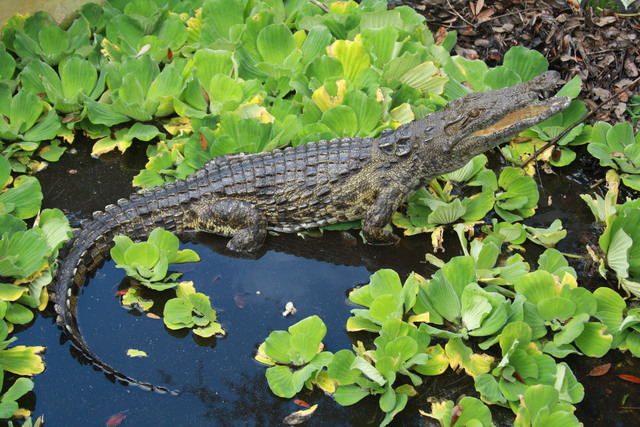FORT LAUDERDALE, Fla. — Step aside, Burmese python — you may no longer be Florida’s scariest invasive species. Researchers have confirmed that three Nile crocodiles were captured near Miami, and they say it’s possible more of the man-eating reptiles are
FORT LAUDERDALE, Fla. — Step aside, Burmese python — you may no longer be Florida’s scariest invasive species. Researchers have confirmed that three Nile crocodiles were captured near Miami, and they say it’s possible more of the man-eating reptiles are still out there, although no one can say for sure.
The big question now: How did they get to Florida?
“They didn’t swim from Africa,” University of Florida herpetologist Kenneth Krysko said. “But we really don’t know how they got into the wild.”
Krysko and his co-authors just published a paper showing that DNA testing proved the three animals captured in 2009, 2011 and 2014 are Nile crocs, a species whose males grow to over 16 feet long and weigh upward of 1,600 pounds. Nile crocs are believed to be responsible for up to 200 fatalities annually in their native sub-Saharan Africa. Compare that with an annual average of six reported shark attack deaths globally.
Krysko, who works at UF’s Florida Museum of Natural History, said the captured crocodiles matched genetically, meaning they are related to one another, but didn’t match Nile crocs kept at Disney’s Animal Kingdom and other licensed Florida attractions. That means the crocs probably were brought to Florida illegally by an unlicensed reptile collector who either didn’t contain them properly, allowing them to escape, or, more sinisterly, planted them in the Everglades in hopes they would multiply.
The Nile croc, if it became established in the Everglades, would pose another invasive threat to its teetering ecosystem. Through crossbreeding, they could endanger the smaller, less aggressive American crocodiles, which have never been responsible for a confirmed human death in the U.S. About 1,000 American crocodiles live in South Florida, mostly in mangroves and estuaries. Any hybrids would degrade the genetic integrity of the endangered American variety.




